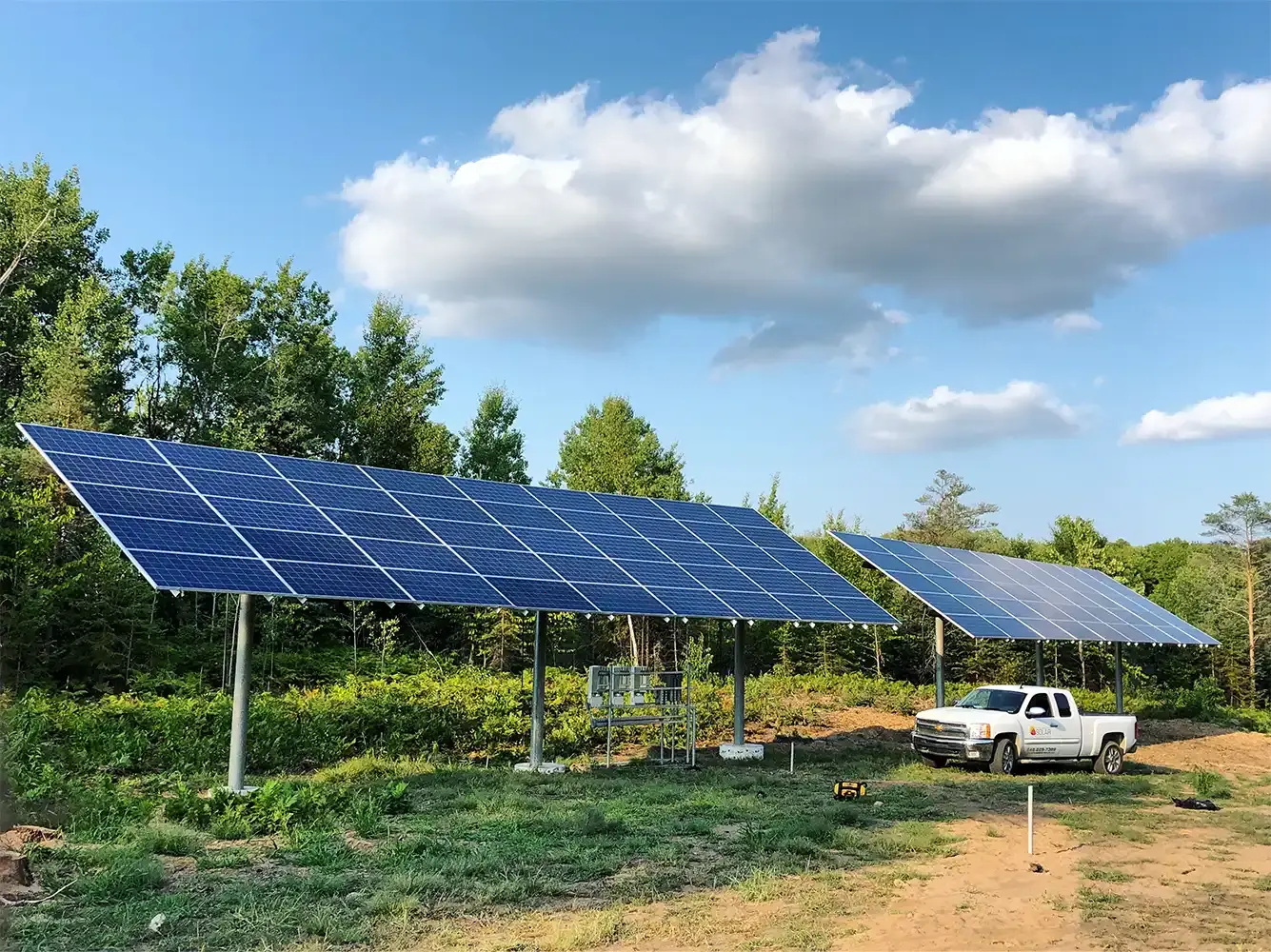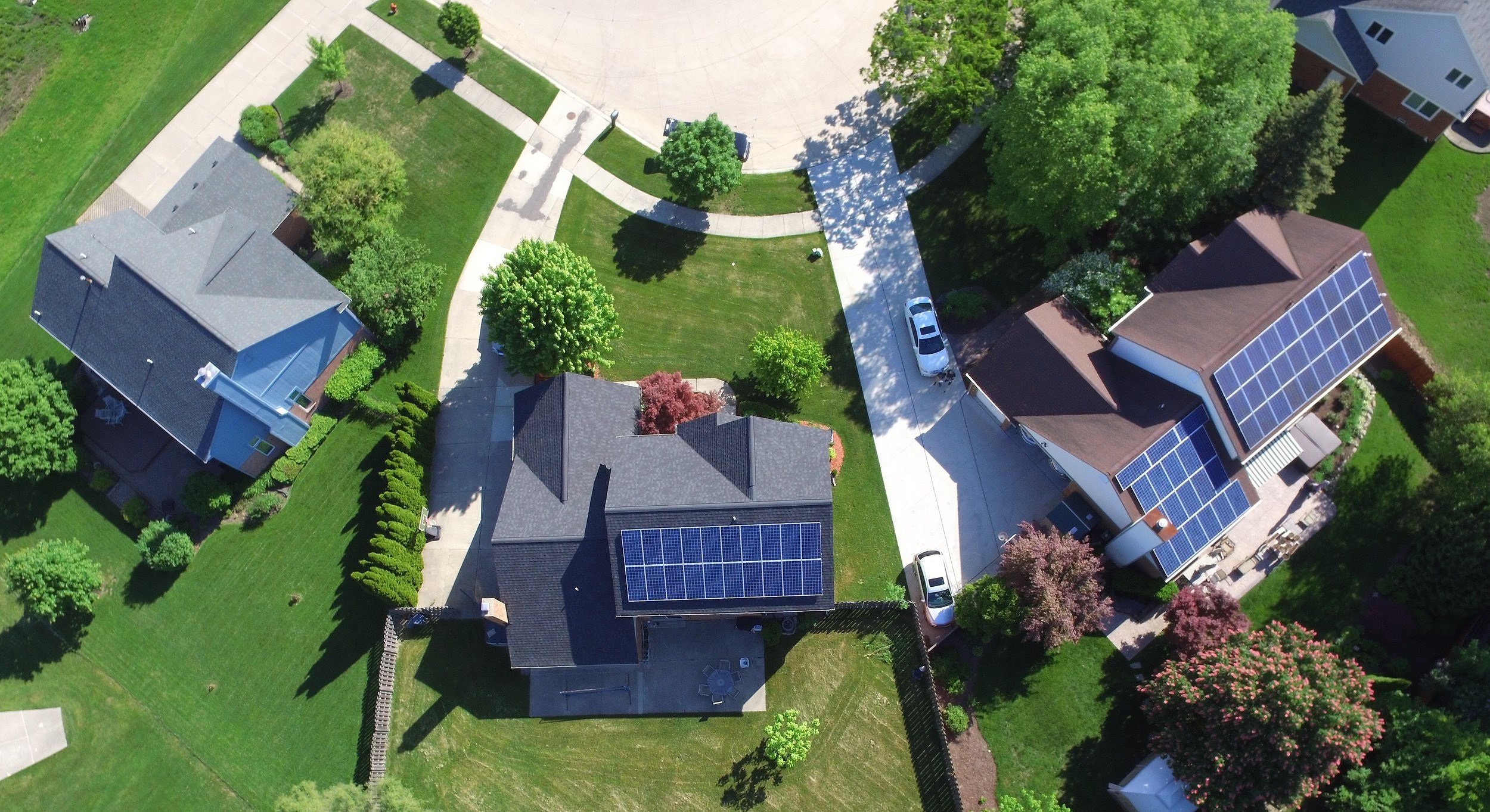Federal Solar Tax Credit remains available for:
- Commercial
- Nonprofit
- Public-sector solar projects
As of January 1, 2026, the federal solar tax credit is no longer available for new residential solar installations.
What Is the Federal Solar Tax Credit?
The federal solar tax credit allows eligible project owners to recover a percentage of their solar installation costs through federal tax incentives.
There were two primary versions of this incentive:
- Residential Clean Energy Credit – for homeowners (now expired)
- Solar Investment Tax Credit (ITC) – for commercial and institutional projects (still active)
These tax credits allow you deduct a percentage of your solar system costs from your federal taxes. Eligible project costs include:
- Solar panels, inverters, and racking
- Labor and installation
- Electrical work and interconnection equipment
- Battery storage systems of 3 kWh or larger
- Permitting, inspections, and even sales tax
For commercial projects, the ITC can cover 30% or more of total system costs when bonus credits are applied.
Lock in Savings
Boost asset value
Cut operating costs
Use clean energy
Beat rising prices
Enable battery backup
Commercial Solar Investment Tax Credit (ITC)
The Solar Investment Tax Credit remains active for commercial and institutional solar projects and offers significantly more flexibility than the former residential program.
Who Qualifies
- Businesses of any size
- Nonprofit organizations
- Schools and universities
- Municipalities and local governments
- Tribal entities
- Agricultural and industrial facilities
Base Credit Amount
Commercial projects qualify for a 30 percent base tax credit if either of the following applies:
- The system capacity is under 1 megawatt (MW), or
- The project meets federal prevailing wage and apprenticeship requirements
If a project is 1 MW or larger and does not meet labor standards, the base credit is reduced to 6 percent.
These projects must also meet the requirements for construction start and placed in service dates to qualify.
Commercial Bonus Credits (Stackable)
Eligible projects can increase the value of the ITC by stacking bonus credits:
- Domestic Content Bonus (+10%)
Uses U.S.-manufactured solar panels and qualifying components - Energy Community Bonus (+10%)
Project is located in a qualifying fossil-fuel-dependent area or brownfield site - Low-Income Community Bonus (+10–20%)
Available for qualifying projects serving or located in low-income areas through a federal application process
Maximum potential credit
Up to 50 percent of total project costs
Commercial ITC Timeline and Key Deadlines
Unlike the former residential credit, the commercial ITC is governed by both construction start dates and placed-in-service deadlines. Understanding this timeline is critical for preserving the full value of the credit.
Key Commercial ITC Dates
July 4, 2026
Begin Construction Deadline
Commercial solar projects must begin physical construction by this date to preserve full ITC eligibility, including bonus credits. Meeting this threshold allows projects to be completed later while maintaining credit value.
December 31, 2027
Placed-in-Service Deadline for Later Projects
Projects that do not meet the July 4, 2026 begin-construction requirement generally must be fully operational by this date to qualify for the ITC.
2028–2030+
Extended Completion Window
Projects that meet the begin-construction requirement by July 4, 2026 may complete construction and be placed in service in later years, subject to IRS continuity and documentation rules.
Why the Commercial Timeline Matters
- Commercial solar incentives are no longer based solely on when a system is turned on.
- Starting construction early can effectively lock in the credit, even if interconnection or final completion occurs years later.
- Projects that miss early construction milestones face much tighter placed-in-service deadlines.
Early planning, permitting, and contracting are now essential for commercial projects seeking to maximize federal incentives.
Credit Transfer and Direct Pay Options
Recent federal changes have expanded access to the ITC beyond traditional tax-paying businesses:
- Credit Transfer
For-profit businesses may sell their tax credit to another entity for immediate cash value - Direct Pay
Tax-exempt entities such as nonprofits, schools, and municipalities may receive the credit as a direct payment from the IRS, even without tax liability
These options allow organizations that previously could not benefit from tax credits to fully monetize federal solar incentives.
How to Claim the Commercial Solar Tax Credit in Michigan
- Install and place the solar system into service
- Maintain detailed invoices and project documentation
- Confirm eligibility for any applicable bonus credits
- File IRS Form 3468 with your federal tax return
- Claim the credit in the tax year the system becomes operational
Because commercial incentives can be complex and project-specific, coordination with a qualified tax professional is strongly recommended.
Get Your Solar Panel Tax Credit Started Now
Whether you are a business owner, municipality, school, or nonprofit organization, commercial solar remains one of the most cost-effective infrastructure investments available.
Strawberry Solar helps clients design systems that maximize federal incentives, comply with labor and sourcing requirements, and unlock every available credit. From engineering to interconnection to incentive guidance, we handle the details so you can focus on long-term savings and energy resilience.


